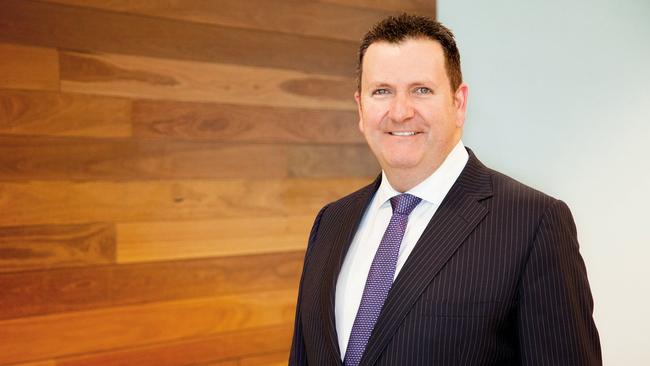Don’t expect repeat of ‘phenomenal’ super returns: ART
People should not expect a repeat of the last decade’s ‘phenomenal’ superannuation returns over the next 10 years, the nation’s second-largest super fund says.
People should not expect a repeat of the last decade’s “phenomenal” superannuation returns over the next 10 years, the nation’s second-largest super fund says.
Australian Retirement Trust chief economist Brian Parker said the shift to more normal levels of interest rates and inflation, and slower growth in the world economy, would feed through into lower investment returns.
“The last 10 years, even if you allow for Covid, was a phenomenal time to be an investor, where investment returns generally were very, very strong,” he told The Australian. “The last decade was phenomenal. We just think the next decade is going to be a bit more challenging.”
Mr Parker said the typical super fund delivered a return well above the long-term objective set 10 years ago, to beat inflation by 4-4.5 per cent, after tax and fees.
“You actually got lucky because that 10-year period was a period of generally very low inflation, falling interest rates, and generally strong interest rates,” he said.
“Now we’re going into an environment where we’re going to go into a more normal level of interest rates and a more normal level of inflation.”
Mr Parker said the expected return for a typical super fund was now lower than the objective set 10 years ago and lower than had actually been achieved over that time.
“So we’re in for a period where actually achieving that return objective is going to be harder than it was, with hindsight, a decade ago,” he said.
The return objective for ART’s balanced option now was to beat inflation by 3.5 per cent after tax and fees over the next decade, which translated to a nominal return of 6 per cent.
“If you can do 6 per cent or 6.5 per cent after fees and taxes on super, you’re doing pretty well over the next decade,” Mr Parker said.
ART has $240bn in assets under management. Its super savings balanced option delivered a 10 per cent return in the 2023 financial year.

Mr Parker would not forecast the level of return over the next year, but expected it to be lower.
“If you’re a betting person, you’d say it’s going to be lower. Last year was a phenomenal year for equity markets,” he said.
“There was a lot to worry about last year but despite that you ended up with double-digit returns from international and Australian shares.
“Should we expect sharemarkets to keep on doing that in an environment where interest rates have gone up aggressively and the economy might start to struggle? I don’t think we should expect that.”
Mr Parker also expects interest rates to remain “elevated” for some time. He “wouldn’t rule out” another Reserve Bank rate rise, to lift the cash rate from the current 4.1 per cent.
While Thursday’s jobs data was weaker, wages numbers should not worry the RBA.
Mr Parker does not expect the RBA to start cutting rates before at least the middle of next year.
“Even then I don’t think you’re going to see interest rates slashed. At that stage it will just depend on how weak the economy is.
“I think we need to get used to the idea that rates are going to stay at these fairly elevated levels for some months.
“If the bond market starts to think that rates are going to go down in the next few months, I think the market’s probably mistaken on that.
“I think the level of interest rates in Australia is now high enough that there’ll be a meaningful number of consumers who are going to pull their heads in over the next six to 12 months,” he said. “You will see an impact on consumer demand and hence you’ll also see an impact on the labour market
“If that’s the way things are going to play out I think the Reserve Bank can pretty much leave rates on hold.”
According to research house SuperRatings, the median balanced fund returned 9.1 per cent over the 2023 financial year, while the 10-year return was 7.5 per cent per annum







To join the conversation, please log in. Don't have an account? Register
Join the conversation, you are commenting as Logout